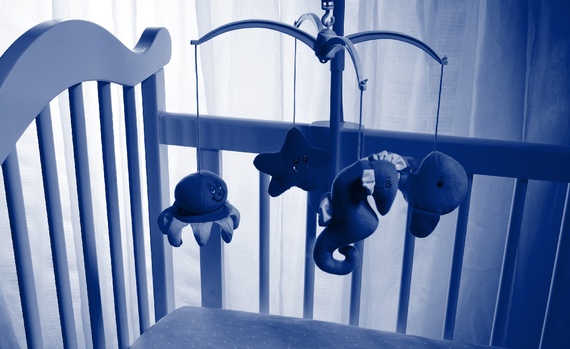I was so irrevocably jostled by motherhood that in the grips of a hysterical episode in my son’s third month, my husband and I questioned whether we’d made the right choice to have a child.
We mothers are always joking about the funds we’ll need to save for our children’s future therapy due to our parenting mistakes—we yelled too loud, we let them blow their minds on Minecraft while sick, we forced them to say sorry when they didn’t mean it, etc. We modern mothers may be more conscientious than our predecessors but we are also far more hovering and hyper aware of every little thing we do.
In a word, you might say we are a bit smug at what better parents we think we are than our parents were.
And the fact is, I did spend copious years in therapy beginning at age 14 trying to heal issues related to my mother (and my father, to be fair). She struggled with drug and alcohol addiction for much of my childhood and young adulthood, ultimately becoming sober for good when I was 20. For years I’ve been working my way through the feelings about the dark years with her—when she was too sick with withdrawal to get out of bed and make me food, or when she was lavishly, affectionately drunk, smothering me in boozy love. When she was late to get me to school, struggling to rise with the effects of hangover, or I had to walk myself home and let myself in alone with a key.
Therapy helped me process muddy shame and bitter anger but still, deep in the pit of me, despite proclaiming my forgiveness, I held onto a hard stone of resentment. If I had been the mother, I glibly thought, I’d have done a much better job.
And then, at nearly 34 years old, I gave birth to my son.
Motherhood packed a wallop I didn’t see coming. That oh-so-perfect mother I thought I’d be was a changeling; sleep deprivation and postpartum hormones morphed me into a person with little patience, deep insecurity, and newfound panic attacks. My husband even got five weeks off from work thanks to the Family Medical Leave Act, but rather than prepare me to cope after his return to work, it left me vulnerable and hopeless to parent without him.
The moment he walked out the door his first day back to work, my stomach lurched to my knees, my own personal turbulence, and I felt like I would throw up. My son seemed to sense my anguish and woke spontaneously and launched into one of his impressive wails in the bassinet. The entire living room compressed to the size of a closet around me, my breath tangled like unwound yarn in my lungs. How was I, a person who had not slept a full night in over five weeks, whose judgment and mood were clouded, supposed to be responsible for this little, helpless human?
I sank to my knees and burst into tears as well.
It was then I remembered a story my mother had told me when we did therapy together years before. When I was 2 and a half, she had just split from my father and moved out of the spacious house they shared with several other couples into a cramped, attic apartment he’d rented at first for himself. In my first full week with her, bathing me in the tiny sink, my mother felt her world reel.
“Something about the way you looked up at me, so small, with your big eyes full of concern, just wrenched my heart, and I started to cry,” she told me. “All I could think was: How am I going to raise this child alone?”
When she first told me about that time beyond my conscious recall, I was still working through my anger. That piece of our history seemed sad, but not terribly so. On the day her words returned to me, however, my son and I squalling in tandem at our helplessness, the memory torqued my intestines up around my heart. For the first time probably ever, I had a visceral understanding of what it must have been like to be my mom: a single mother to a 2-year-old, split from her teenage sweetheart who was also one of a very few people who had known her brother before his death, still grieving, and now burdened to find a way to support us both with a high school education. Add to this the beginnings of a substance abuse addiction, and I had to ask: In her shoes could I have done any better?
I barely held it together with a loving husband, who was an attentive father, the ability to work from home, and with a lot more healing under my belt than my mother had. Yet I was still so irrevocably jostled by motherhood that in the grips of a hysterical episode in my son’s third month, my husband and I questioned whether we’d made the right choice to have a child.
It took me years to realize the odds were stacked against my mother, but with my son’s birth, an initiation by fire into the reality of being responsible for another human being, forgiveness for my mother came effortlessly.
Jordan Rosenfeld is author of: A Writer’s Guide to Persistence, Make a Scene, Write Free, and the novels Forged in Grace, and Night Oracle. Her essays have appeared or are forthcoming in: Brain, Child, Dame, Modern Loss, The New York Times, Paste, Purple Clover, The Rumpus, Stir Journal, the Washington Post, Role Reboot and more.
Related Links:

